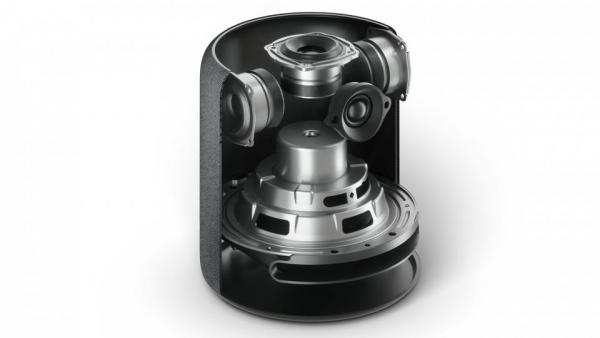Should I Love or Hate Amazon’s Echo Studio?

I am a conflicted person. I love new technology, and I immensely enjoy those instances when a new technology appears and is obviously superior to anything that came before it. When that happens — wow! Man oh man, I love technology and I am proud to be an engineer.
But I am also a pragmatist. I know that all technology has limitations and too often I have been disappointed when the hype does not deliver what was promised. Man oh man, I hate overzealous marketing and I'm glad I'm not a marketing guy.
Which brings us to the Amazon Echo Studio. My first observation is this: Echo has come a long way. When it was first introduced in 2014, the Echo was notable for its voice command chops. Very cool! However it was never interesting as a serious audio playback device. Over the course of its evolution, and many new models, this never really changed. The Echo Studio seeks to remedy this.
The Echo Studio ($200) is billed as a “high-fidelity smart speaker with 3D audio and Alexa.” So, it does three things. The Alexa feature is a given. What about high fidelity? The speaker stands 8-inches high, and has three 2-inch midrange drivers firing left, right and up; a 1-inch front-firing tweeter; and a 5.25-inch downward-firing woofer. Peak power is rated at 330 watts. Not bad, but does that design constitute “high fidelity?”
Of course, there is no definition or agreed-upon criteria for what qualifies as high fidelity. Compared to previous Echoes, this one almost certainly sounds better. And frankly, in this era of earbuds and really crappy smart speakers, since the bar for high fidelity has been lowered to such a degree, any improvement is a good thing. At least it's better than what Amazon was foisting on people before. Given its price point, I pretty much know what it will sound like; it won't be hi-fi to me, but many people might think it sounds pretty good. So, okay.
And what about this “3D audio” thing? This is the most interesting claim and is the single biggest area of audio where I've been burned the most. I can't begin to count the number of times that a soundbar or other speaker system has promised an immersive experience, using a combination of signal processing and room acoustics. And then it fails to deliver anything remotely interesting. Clearly, the ability of an essentially point-source speaker to surround you with sound is problematic
Amazon says it will wrap you in “audio from every direction.” Technically, and legally, that is true. Play any sound in an enclosed space, and you will hear sound from every direction. And Amazon says it “sends different parts of the song to your ears from different directions.” That's also easily achievable, for example, by directing high frequencies to a tweeter pointing in one direction, and a midrange pointing in another direction, and letting your room do whatever it wants to those parts. But I'm pretty sure that any sense of spatial fidelity will be sorely missing.
And yet the Echo Studio has an interesting trick up its sleeve. In addition to spatial digital signal processing and the usual room-reflection tricks, it can play a library of music files that have been coded for 3D playback. These files are only available with an Amazon Music HD subscription and the speaker uses the coding, along with Dolby Atmos for upmixing stereo music, to enhance the playback soundfield. Also, apparently, soon the speaker will also play back 3D files from Tidal. Without access to any meaningful technical information it is impossible to know what is engineering here, and what is marketing. But the combination of 3D files and a speaker designed to play them has promise.
So, what do I think of the Echo Studio? In my opinion, Amazon is overhyping the speaker's soundfield fidelity. There is no way for a single speaker to correctly immerse you in sound, especially given this speaker's low price point. But, the effect might be good enough for many people. And given its low price, you could buy two of them and set them up as a left/right pair, for example, pairing them to an Amazon Fire TV device, to create a stereo system that could probably provide decent spatial playback.
So, the Echo Studio delivers better sound quality than previous Echoes; it appears to have a decent speaker complement; it provides spatial processing for 3D tracks; it incentivizes people to subscribe to Amazon Music HD which has bit rates up to 850 kbps (16-bit/44.1 kHz), and is the gateway to Amazon Ultra HD with bit rates up to 3730 kbps (24-bit/192 kHz); and it throws in Dolby Atmos — for 200 bucks. All of that is miles beyond what the first Echoes provided, and frankly is pretty impressive. Even if sometimes I act like an audio purist, I can't entirely hate this speaker.





























































